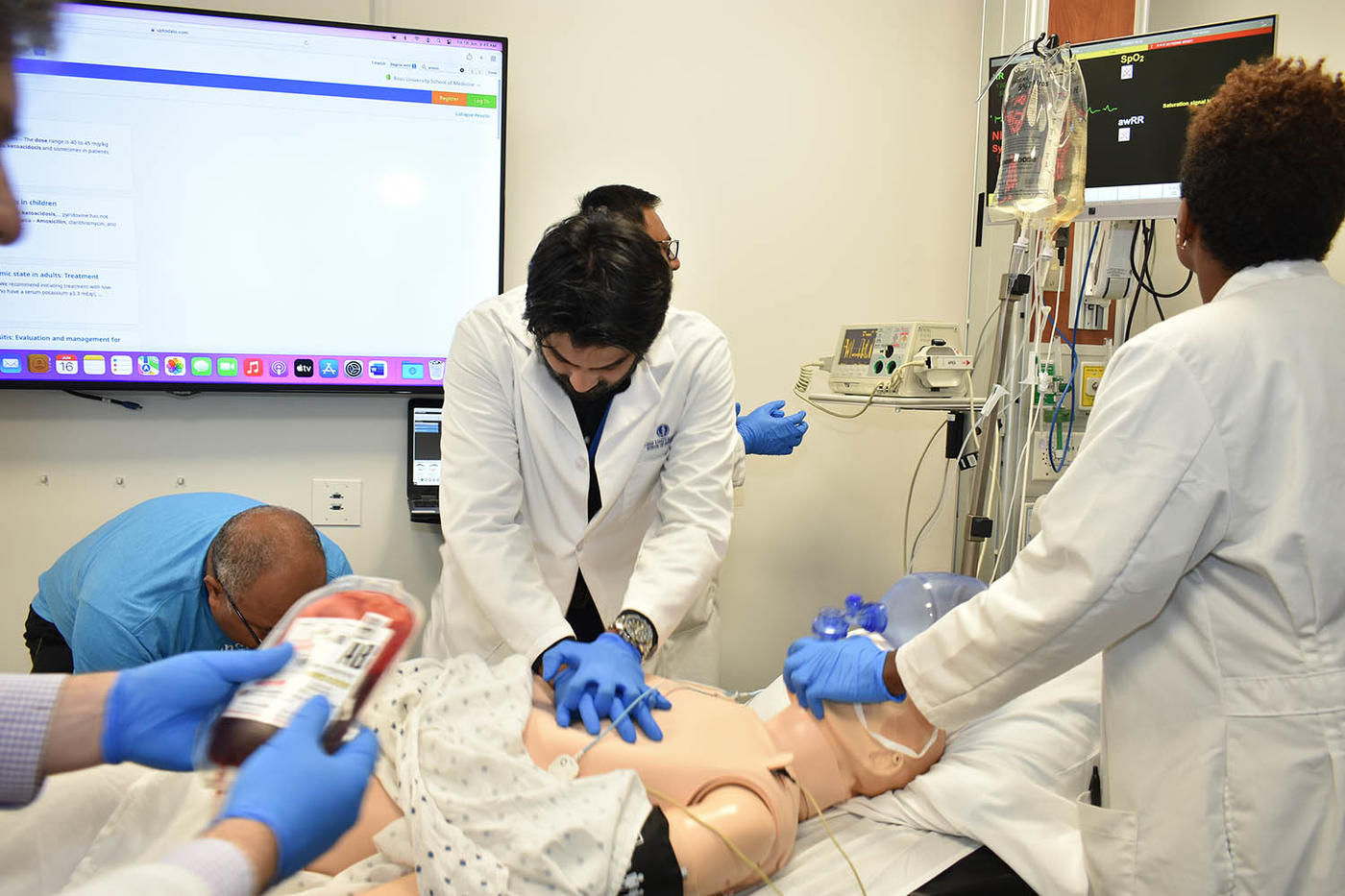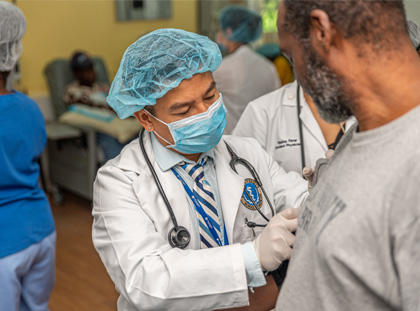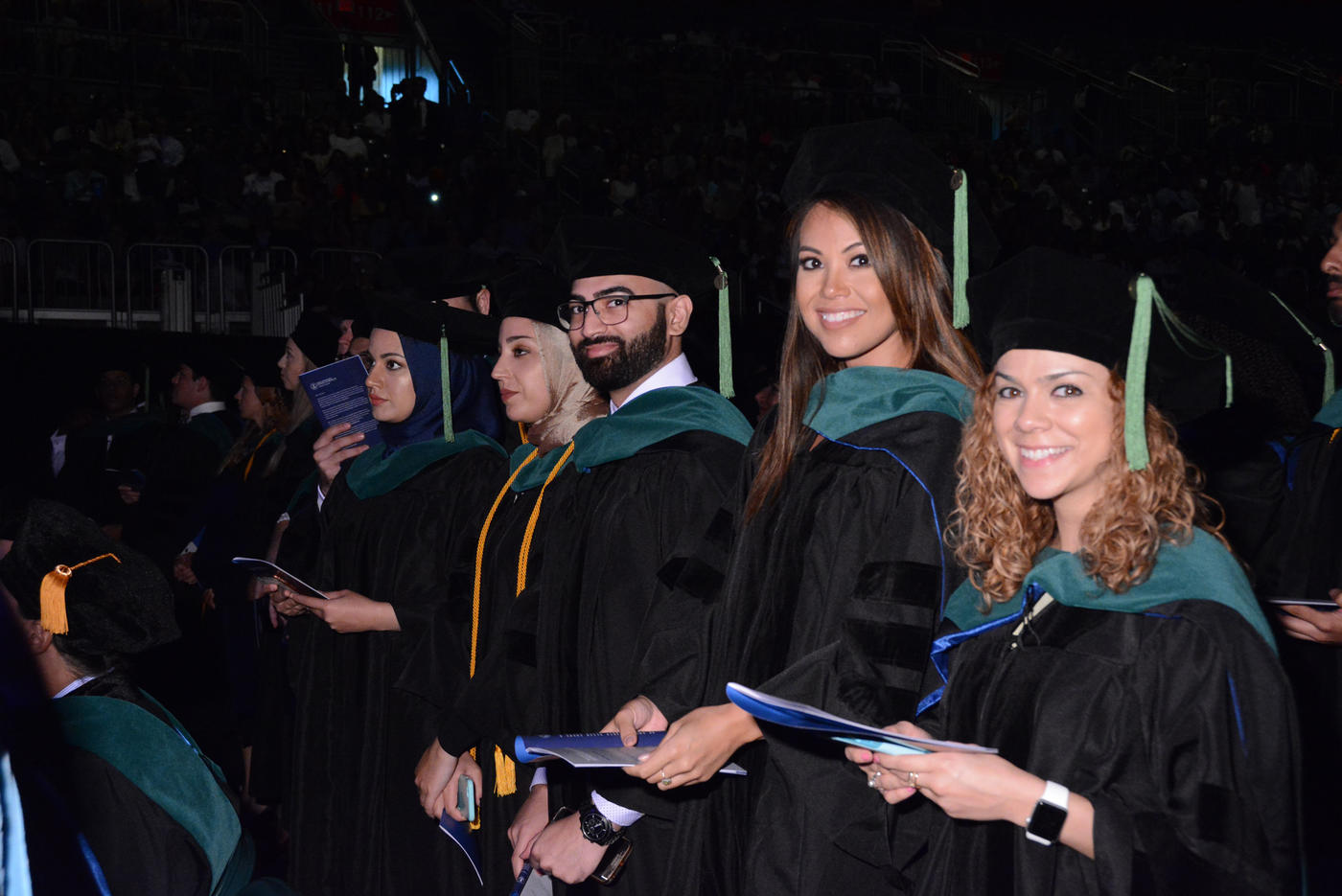How Do I Transition to Medical School?
Once you have accepted a medical school offer, you should withdraw your application from schools you will not attend. Doing so in a timely manner can open a spot for other candidates and minimize delays during the admissions decisions. The American Association of Medical Colleges (AAMC) recommends communicating this withdrawal directly to these medical schools in writing.
Students who need funding to cover their medical school program can complete the Free Application for Federal Student Aid (FAFSA®). We strongly recommend students only borrow what they need to cover their school expenses. This can help limit the amount you will owe after graduation and promote responsible borrowing.
Students who borrow private loans must contact their lender or servicer as these loans cannot be viewed through FAFSA. Certain loan types may accrue interest during the deferment period which increases the overall total graduates owe. Specifics for these kinds of loans may be available on promissory notes or individual credit reports.
If you happen to have any outstanding credit card debt, the AAMC suggests paying it prior to medical school. They also recommend students who use a credit card for their expenses pay off the balance in full each month. This can reduce financial burdens placed on you during medical school and teach you how to live within your means.
Most medical schools need proof of recent health immunizations. Getting a checkup prior to starting medical school can ease the transition from medical school to clinical training. It is also great practice to model behavior you will eventually ask your patients to emulate.
For more insight into easing the transition from undergrad to medical school, check out this post.
Do All Medical Schools Accept Transfer Students?
It is up to each medical school to determine if they accept transfer students.
Ross University School of Medicine (Ross Med) accepts preclinical and clinical transfer students. While Ross Med can accept transfer students, we recommend you first speak with an admissions advisor. This provides additional insight into specific questions as well as assistance throughout your application process.
Can I Transfer Between Medical Schools at Any Time?
Typically, students interested in transferring medical schools have completed one year in their current program prior to their transfer. This gives students time to:
- Begin building their medical sciences foundation
- Adapt to their new learning environment
- Form connections with faculty members who may provide letters of recommendation
- Assess compatibility with their current program
- Make an informed decision about transferring
It is generally recommended for medical students to transfer between the second and third years of the program. This allows students to complete their preclinical studies prior to the shift to clinical rotations.
Each medical program follows its own timeline. Make sure to compare the timeline for the current program with the desired program to minimize any delays in completion.
Will Transferring Medical Schools Prolong My MD Experience?
Transferring medical schools may prolong time spent in a Doctor of Medicine (MD) program.
Ross Med does its best to mitigate these risks by examining each transfer student’s:
- Cumulative grade point average (CGPA)
- Premedical coursework grade point average (PGPA)
- Medical coursework
Examining a student’s CGPA, PGPA, and medical coursework allows Ross Med to assess what students have learned in prior programs. This helps us place students in the appropriate spot within our curriculum to help students transition with minimal interruptions.
Will Transferring Medical Schools Be Viewed Negatively?
Students may need to transfer medical schools for a variety of unforeseen reasons. A student’s performance during medical school matters more than if they transferred. Medical programs prepare students to become physicians and take the first and second parts of their licensure exams. You will need to write a letter of interest explaining your reasons for transfer, and the deans of the two schools usually need to have direct communication regarding your specific case.
What Do I Need to Transfer to a New Medical School?
The transfer process may vary based on the school and when students aim to transfer. At Ross Med, we accept transfers into our medical sciences and clinical programs.
To transfer into our medical sciences program, students will need:
- A completed Ross Med application
- Official transcript(s) from each college and/or professional school attended
- A minimum of three official recommendation letters on appropriate letterhead with contact information included. These letters must be sent directly from the recommending party to the Ross Med Admissions office.
- One academic letter from a previous pre-medical professor or a college pre-health advisory committee member
- One academic letter or reference from a physician the applicant has previously worked with. This letter can also be a character reference from a previous employer or volunteer opportunity.
- One Dean’s letter from the current medical school attended
- Medical College Admission Test® (MCAT®) scores
- Personal Statement addressing why you want to transfer to Ross Med
- CV/Resume detailing clinical and medical experiences
Students transferring into our clinical program must complete the same steps as those applying to the medical sciences program. In addition, they will need to submit their United States Medical Licensure Examination® (USMLE®) Step 1 score, if applicable. Accepted transfers with USMLE scores must register for and complete the 4-week Hospital Medicine elective at Cleveland Clinic Florida.
Students without USMLE Step 1 scores can still have their application reviewed for admission. These students must pass USMLE Step 1 before they can register for clinical courses. Students must also complete the mandatory 4-week Hospital Medicine elective at Cleveland Clinic Florida. Once they pass Step 1 and complete the 4-week elective, they can register for clinical courses.
Medical school transfers will not be given credit for incomplete or failed courses. Courses with a grade of D or below count as failed courses. Courses taken more than four years before an applicant’s acceptance for enrollment are not eligible for credit.
Next Steps…
Ross Med is a medical school that accept transfer students. We strive to facilitate a seamless transition for students no matter where they fit into our program.
Want to learn more about our transfer process? Call us at 1-(732)-509-3041, submit this form, or send an email to admissions@rossu.edu
FAFSA® is a registered trademark of the U.S. Department of Education.




